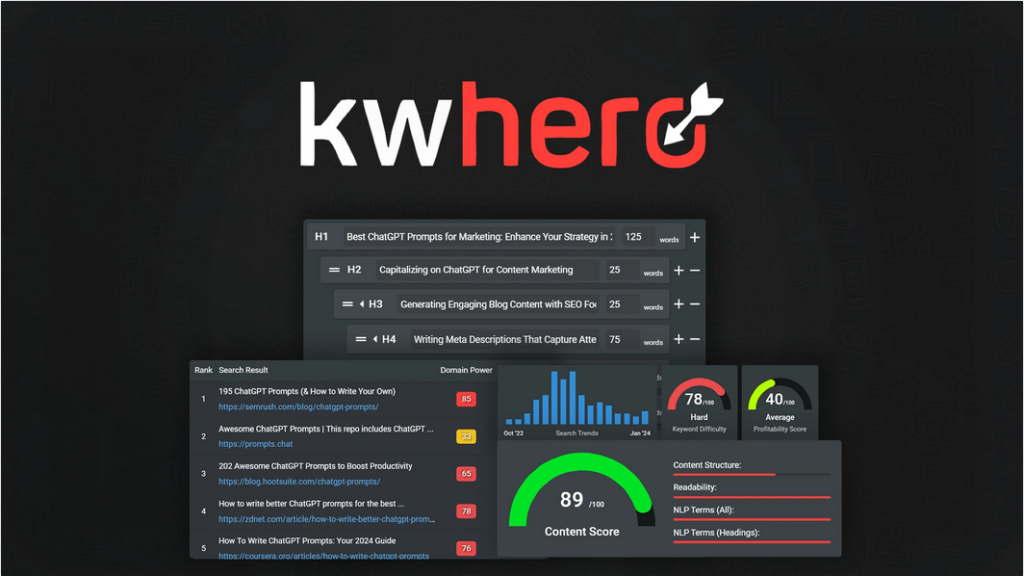optimization strategies for online presence
In today’s digital age, having a strong online presence is crucial for businesses of all sizes. With the increasing competition in the online space, it’s more important than ever to optimize your online presence to stand out from the crowd. In this article, we will discuss some effective strategies that can help you optimize your online presence and attract more customers.
Build a Responsive Website
One of the first steps in optimizing your online presence is to have a responsive website. A responsive website is one that can adapt to different screen sizes and devices, such as smartphones and tablets. This is important because more and more people are accessing the internet on mobile devices, and having a responsive website ensures that your site looks and functions properly on all devices.
- Ensure that your website loads quickly on all devices to provide a seamless user experience.
- Optimize images and videos for mobile devices to improve loading times.
- Implement clear and intuitive navigation to make it easy for users to find what they are looking for.
Create High-Quality Content
Content is king when it comes to online presence optimization. Creating high-quality, relevant content is essential for attracting and engaging your target audience. Whether it’s blog posts, videos, infographics, or social media posts, make sure that your content is informative, engaging, and valuable to your audience.
- Conduct keyword research to understand what your audience is searching for.
- Develop a content calendar to consistently produce relevant and timely content.
- Use storytelling techniques to make your content more compelling and memorable.
Read about programmatic ai seo content marketing strategies
Use SEO Best Practices
Search engine optimization (SEO) is a crucial component of online presence optimization. By optimizing your website and content for search engines, you can improve your visibility and attract more organic traffic. Some SEO best practices include keyword research, on-page optimization, link building, and user experience optimization.
- Conduct a comprehensive SEO audit to identify areas for improvement on your website.
- Optimize meta tags, headings, and image alt text with relevant keywords.
- Build quality backlinks from reputable websites to improve your search engine rankings.
Leverage Social Media
Social media is a powerful tool for building and optimizing your online presence. By creating a strong presence on social media platforms such as Facebook, Twitter, Instagram, and LinkedIn, you can reach a wider audience and engage with your customers in real-time. Be sure to share your content on social media, interact with your followers, and participate in relevant conversations to build brand awareness and credibility.
- Use social media analytics tools to track the performance of your posts and campaigns.
- Engage with influencers and collaborate on content to reach a larger audience.
- Run social media contests and giveaways to increase engagement and grow your following.
Monitor Your Online Reputation
Your online reputation can make or break your business. In today’s digital world, customers have the power to share their experiences and opinions online, which can influence the perception of your brand. Monitor your online reputation by keeping an eye on customer reviews, comments, and mentions on social media. Respond promptly to any negative feedback and address customer concerns to maintain a positive online reputation.
- Encourage satisfied customers to leave positive reviews on popular review sites.
- Respond to both positive and negative feedback in a professional and timely manner.
- Use online reputation management tools to monitor mentions of your brand across the web.
Optimize for Local Search
If you have a physical location or serve a specific geographic area, it’s important to optimize your online presence for local search. This involves creating a Google My Business profile, optimizing your website for local keywords, and getting listed in online directories. By optimizing for local search, you can increase your visibility in local search results and attract more local customers.
- Include your business address, phone number, and hours of operation on your website.
- Encourage customers to leave reviews on Google My Business and other local directories.
- Create location-specific landing pages to target customers in different geographic areas.
Analyze and Refine Your Strategies
Optimizing your online presence is an ongoing process. It’s important to regularly analyze your strategies and performance to identify what’s working and what’s not. Use tools such as Google Analytics to track your website traffic, engagement, and conversions. Based on your analysis, refine your strategies and experiment with new tactics to continuously improve your online presence.
- Set clear goals and key performance indicators (KPIs) to measure the success of your online presence.
- Conduct A/B testing to optimize your website, content, and marketing campaigns.
- Stay up-to-date with the latest digital marketing trends and adjust your strategies accordingly.
In conclusion, optimizing your online presence is essential for attracting more customers, increasing brand awareness, and staying ahead of the competition. By following these optimization strategies, you can enhance your online presence and achieve your business goals. Remember to stay informed about the latest digital marketing trends and best practices to ensure long-term success in the online space.
FAQ
1. Why is having a responsive website important for online presence optimization?
Having a responsive website is important because it ensures that your site looks and functions properly on all devices, including smartphones and tablets, where more people are accessing the internet.
2. What role does high-quality content play in optimizing online presence?
High-quality content is essential for attracting and engaging your target audience. It includes blog posts, videos, infographics, and social media posts that are informative, engaging, and valuable to your audience.
3. How can SEO best practices help improve online visibility?
SEO best practices, such as keyword research, on-page optimization, link building, and user experience optimization, help improve your visibility and attract more organic traffic to your website.
4. Why is leveraging social media important for building online presence?
Leveraging social media platforms like Facebook, Twitter, Instagram, and LinkedIn helps you reach a wider audience, engage with customers in real-time, and build brand awareness and credibility through sharing content and interacting with followers.


